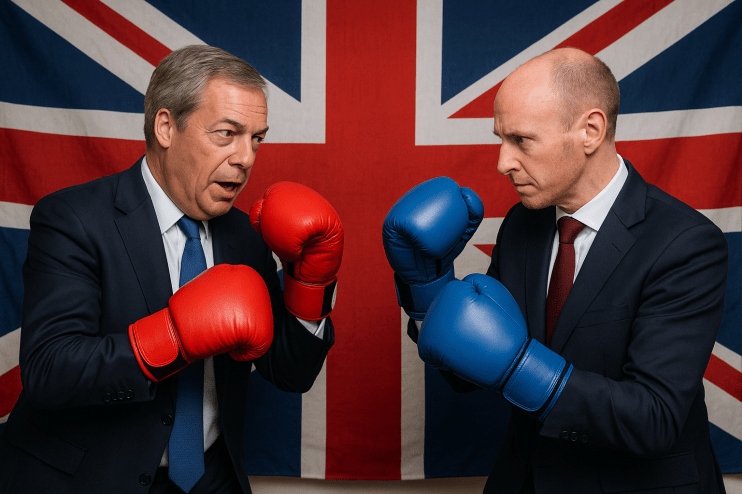Friday 29 August 2025 10:09 am
| Updated:
Friday 29 August 2025 10:23 am
Share
 Image generated by Chat GPT
Image generated by Chat GPT
Nigel Farage is capitalising on decades of failure to deliver on immigration, but there’s a deeper question: what did Britain really mean by Brexit? Asks Alys Denby
“There’s a high priest of Euroscepticism who thinks quoting large amounts of Shakespeare will help connect with people” said Nigel Farage when vying with Daniel Hannan to head the Leave campaign during the Brexit referendum. “The posh boys are going to talk about trade when you’ve got an open goal with immigration and should use that,” the UKIP leader added, according to Michael Crick’s superb biography One Party After Another.
Nearly a decade on, Farage is still kicking at the same target, and this week unveiled plans for mass deportations under a future Reform government. Just a couple of years ago, I was on a panel discussing this topic with Daniel Finkelstein – a serious moral thinker who, as the son of Holocaust survivors, knows something about refugees. He was unequivocal that to dehumanise asylum seekers and describe illegal migration as an “invasion” was not acceptable and undermined our status as a welcoming country.
Unapologetic
This week Farage used that term unapologetically while standing in front of the biggest union flag in Britain. Yet instead of hand-wringing about the ethics of his proposals, coverage has focused on their viability and impact on his prospects of being the next Prime Minister. The Overton window has undergone a migration of its own.
The Overton window has undergone a migration of its own.
Of course a nation is not a nation if it can’t control its own borders. The status quo is unjust both to those it incentivises to risk their lives in the Channel and to the communities burdened with asylum hotels. But foreigners, as Finkelstein’s parents and their generation could attest, are always an easy scapegoat for broader weaknesses in a society. We should not let the vital work of fixing immigration become a distraction from harder conversations about low growth, low productivity, over regulation and global competitiveness.
A nation is not a nation if it can’t control its own borders
On these, Farage has no answers. Perhaps he should have listened a little more to Hannan, whose loft oratory has always made a powerful case for free markets and international trade – policies that could have placed the UK in a stronger position outside the EU. Instead, Britain has pursued Brexit without a coherent strategy on immigration or growth, allowing the former to eclipse the latter in a discourse growing increasingly toxic.
Read more
Comparing Nigel Farage to Jimmy Savile marks a new low in politics
Similarly tagged content:
Sections
Categories
People & Organisations